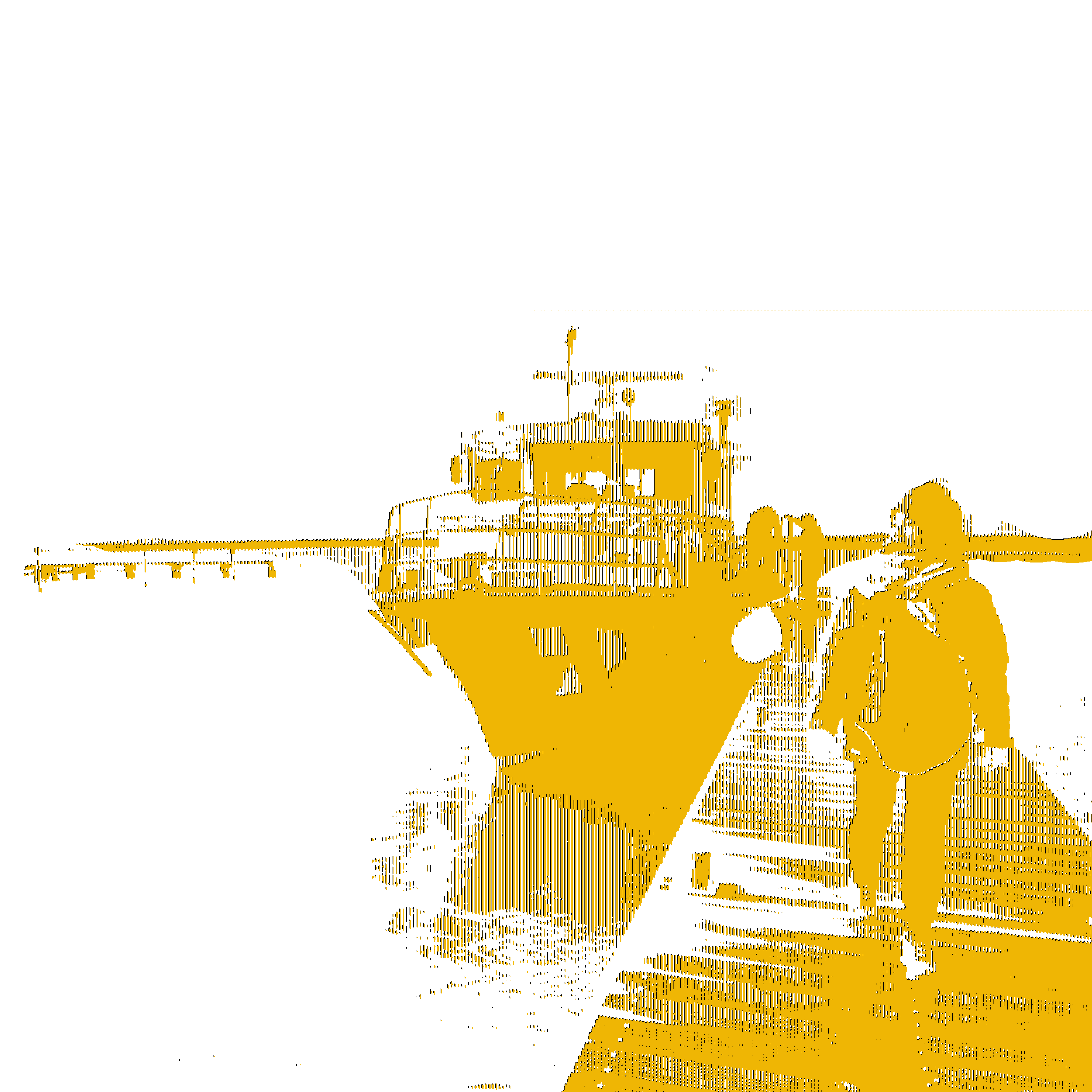Preservationists in a tiny lakeside community in Michigan are using new approaches to fight the threat of flooding caused by climate change. While the fishing industry has struggled in the region, saving the historic buildings in Fishtown is critical to the region’s local economy. Hari Sreenivasan reports as part of our ongoing series ‘Peril & Promise: The Challenge of Climate Change.’

As a nonprofit journalism organization, we depend on your support to fund our nationwide Connected Coastlines climate reporting. Donate any amount today to become a Pulitzer Center Champion and receive exclusive benefits!
Read the full transcript below:
Hari Sreenivasan: In a tiny lakeside community in northern Michigan, preservationists are using new approaches to address the threat of flooding caused by climate change. While the fishing industry has struggled in the region, saving the historic buildings that dotted the shorelines is important to the economy and tourism. This story was produced in partnership with the Pulitzer Center, and is part of our ongoing series, 'Peril and Promise: The Challenge of Climate Change.'
Hari Sreenivasan: This is historic preservation in action. To understand why, you need to know more about this building, its location and its history.The building houses Carlson's Fishery, owned and operated by the same family for five generations. Carlson's is located in a group of preserved fishing shanties in Leland, Michigan known as Fishtown. The Fishtown Preservation Society is responsible for its administration and maintenance.
Amanda Holmes: Ha! Ok! Here's a reason we may want to keep some of those rafters. We can replace some of these.
Hari Sreenivasan: Amanda Holmes is its Executive Director.
Amanda Holmes: The reason it is here is because there's always been someone here to care for it. First it was the fisherman. But starting in 2007 with Fishtown Preservation, then it became our job to maintain these buildings.
Hari Sreenivasan: Carlson's should be full of employees preparing smoked whitefish, salmon and trout to be shipped across the country. Instead, a demolition team is preserving the business by taking the ironic step of destroying a part of the building. That's because Carlson's is in danger. Fishtown straddles the Leland River, the connector between inland Lake Leelanau and the open waters of Lake Michigan. Once the location of a thriving commercial fishing industry, Fishtown was almost lost when invasive species devastated the industry in the second half of the twentieth century. The community banded together to save the shanties that make up Fishtown and preserve the area for future generations as a reminder of its historic importance.
Amanda Holmes: Every community used to have a Fishtown. They dotted the Great Lakes everywhere. Leland to Northern Michigan without Fishtown would really have a deep, deep hole.
Hari Sreenivasan: The area has become a tourist destination with 12 small, family-owned businesses that draw 300,000 tourists, and their dollars, every year from all over the world. Now Carlson's and Fishtown are facing a new threat: the waters that made Fishtown possible in the first place. The Leland River is overflowing its boundaries Changes in atmospheric pressure over a higher-than-normal Lake Michigan are also pushing more water into that river and endangering Fishtown. The region has experienced extreme high and low water events in the past, but this time it's different. Lauren Fry is a Physical Scientist with the National Oceanic and Atmospheric Administration's Great Lakes Environmental Research Laboratory in Ann Arbor, Michigan.
Lauren Fry: Precipitation amounts have increased over the Great Lakes Basin as a whole over the last few decades. It's been corresponding with increases in temperature. Climate change is an important factor in the increased precipitation amounts that we see because the warming atmosphere can hold more moisture. And so that results in more frequent and more intense precipitation events. Over the land surface that's going to result in more runoff into the lake. And then on the lake surface, that's just more direct input into the lake itself.
Hari Sreenivasan: Fishtown has seen more frequent and intense flooding since 2018. It has caused swamped docks, inundated shanties and lost revenue.
Amanda Holmes: That's when I first started realizing we were going to have a lot more water issues then than we had anticipated. We really had to start changing gears in what we were thinking about for the shanties.
Hari Sreenivasan: So the Fishtown Preservation Society decided to take the dramatic step of lifting the shanties. Some have been placed on higher foundations. Others on new pilings that rise above the projected high water mark for the Leland River. Carlson's is the fourth shanty to be lifted in the past two years. Raising each shanty has its own complications. In the case of Carlson's, it requires destroying part of the building that was too damaged by flooding and could not be saved in order to preserve the rest. Carlson's will also have to be closed for as long as six months while the work is completed.
Amanda Holmes: The foundation work that we're doing we intend that to be for 50 to 100 years, and we also have raised them up to a level that we feel will endure the future high water levels, but also making certain that as we're building those buildings that if the water does come in, that it's not a serious problem in the way that it has been for us in the last couple of years.
Hari Sreenivasan: Originally budgeted at $1.7 million dollars, the total cost of the work has more than doubled to $3.5 million due to the complexity of the project and an increase in the cost of building materials.
Amanda Holmes: Most of our money comes from the public, from community members. And when I say community, it's Leland, it's beyond. And it's like all over the world, people who have visited and love Fishtown.
Hari Sreenivasan: Despite all the effort, money, and care, the improvements to Fishtown may only last so long. A lot depends on how much the climate changes in the Leland area.
Lauren Fry: We tend to use data from the past to predict the future. And the past isn't always indicative of what the future is going to do, as we've seen, so it becomes harder to see those changes. And I think that's kind of a general thing we deal with in this climate change role. We will see in general for the Great Lakes basin more precipitation amounts, although the timing of when that falls will be perhaps different. We're looking at potentially drier summers and the increases in precipitation and other times of the year.
Amanda Holmes: There are a lot of opinions out there about what climate change is and what causes it. But when I describe the issues that we face, from a lot more rainfall, the water levels of Lake Michigan kind of coming and going more frequently. The rainfall and how it's coming over the dam. And just from what I know has been a part of Fishtown's weather and climate story in the past. I think that we're being impacted by it very directly.












